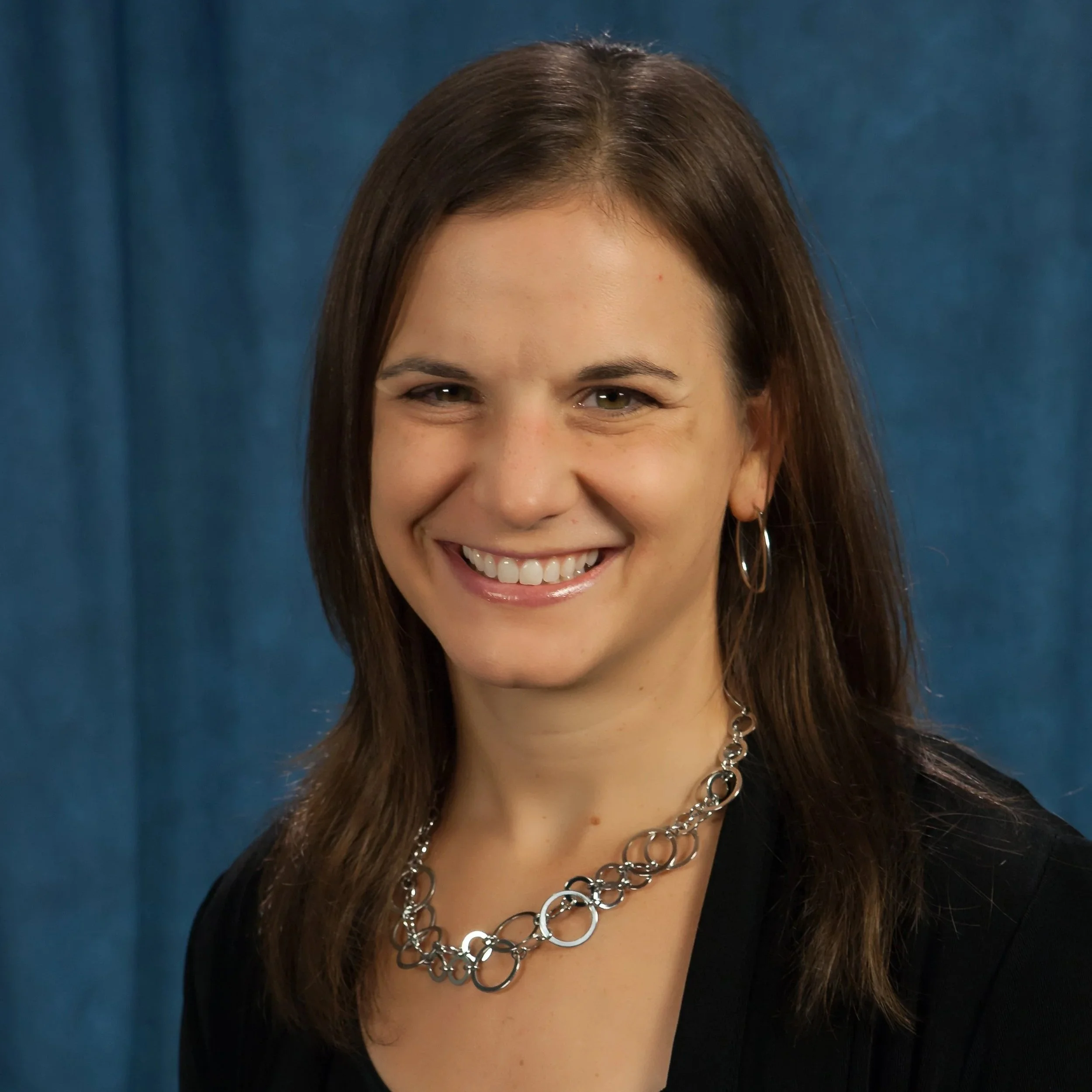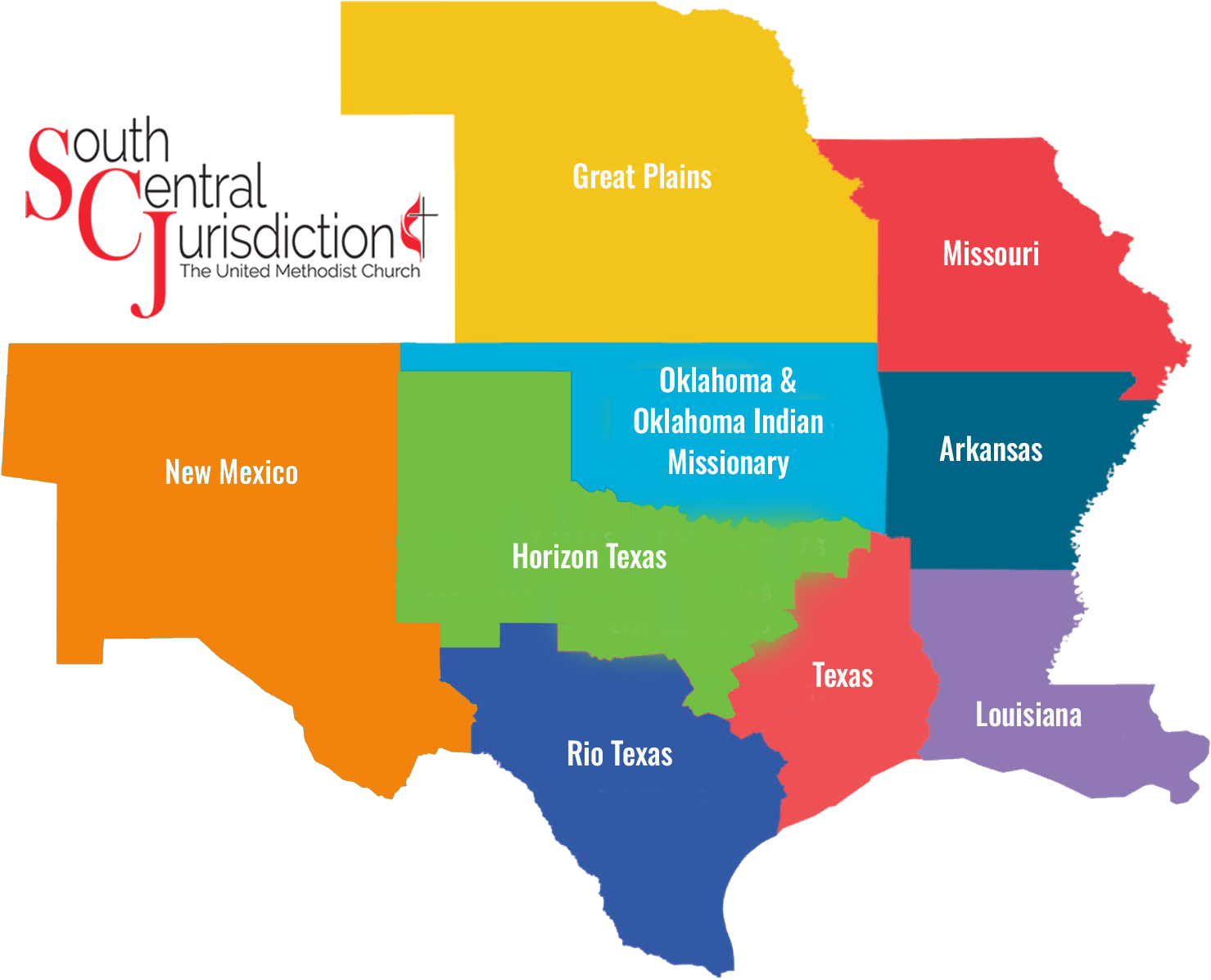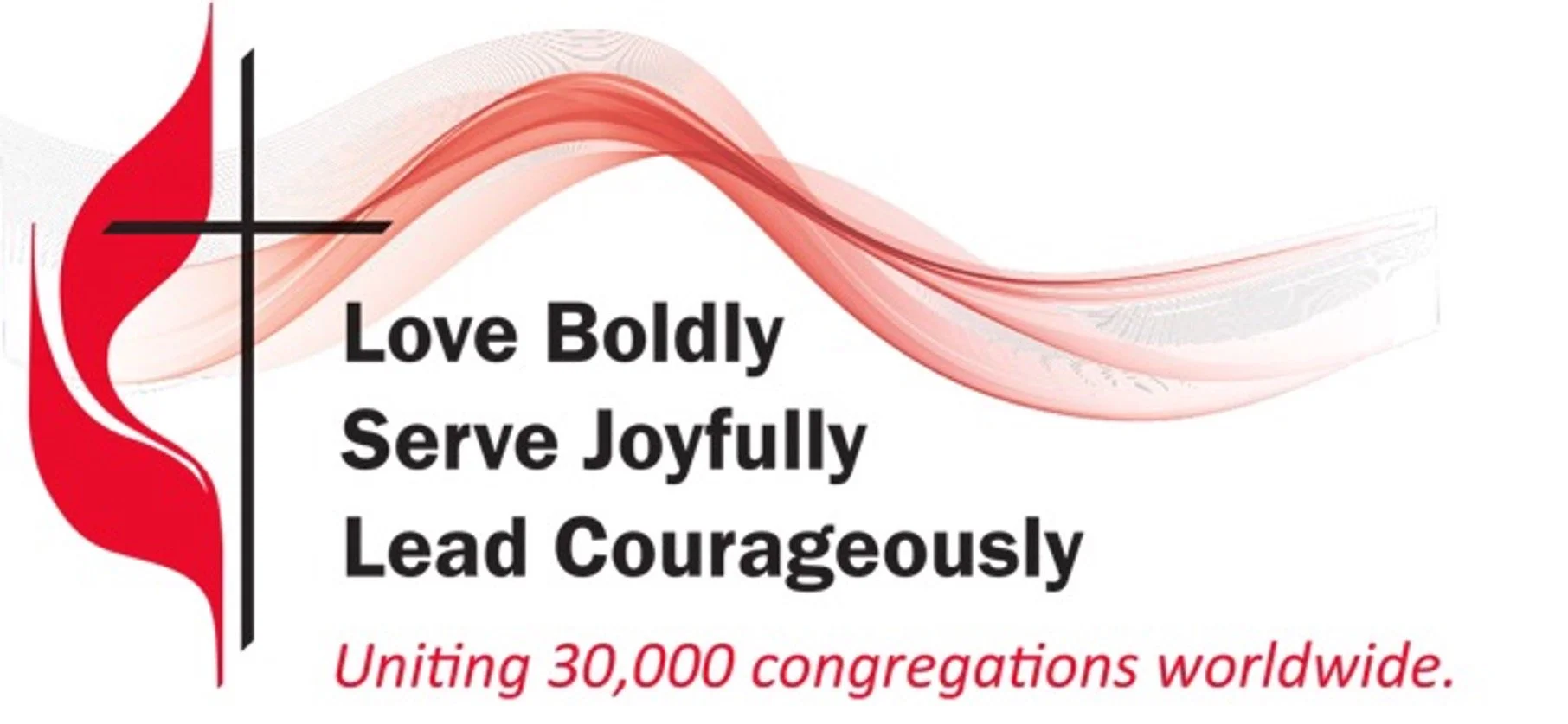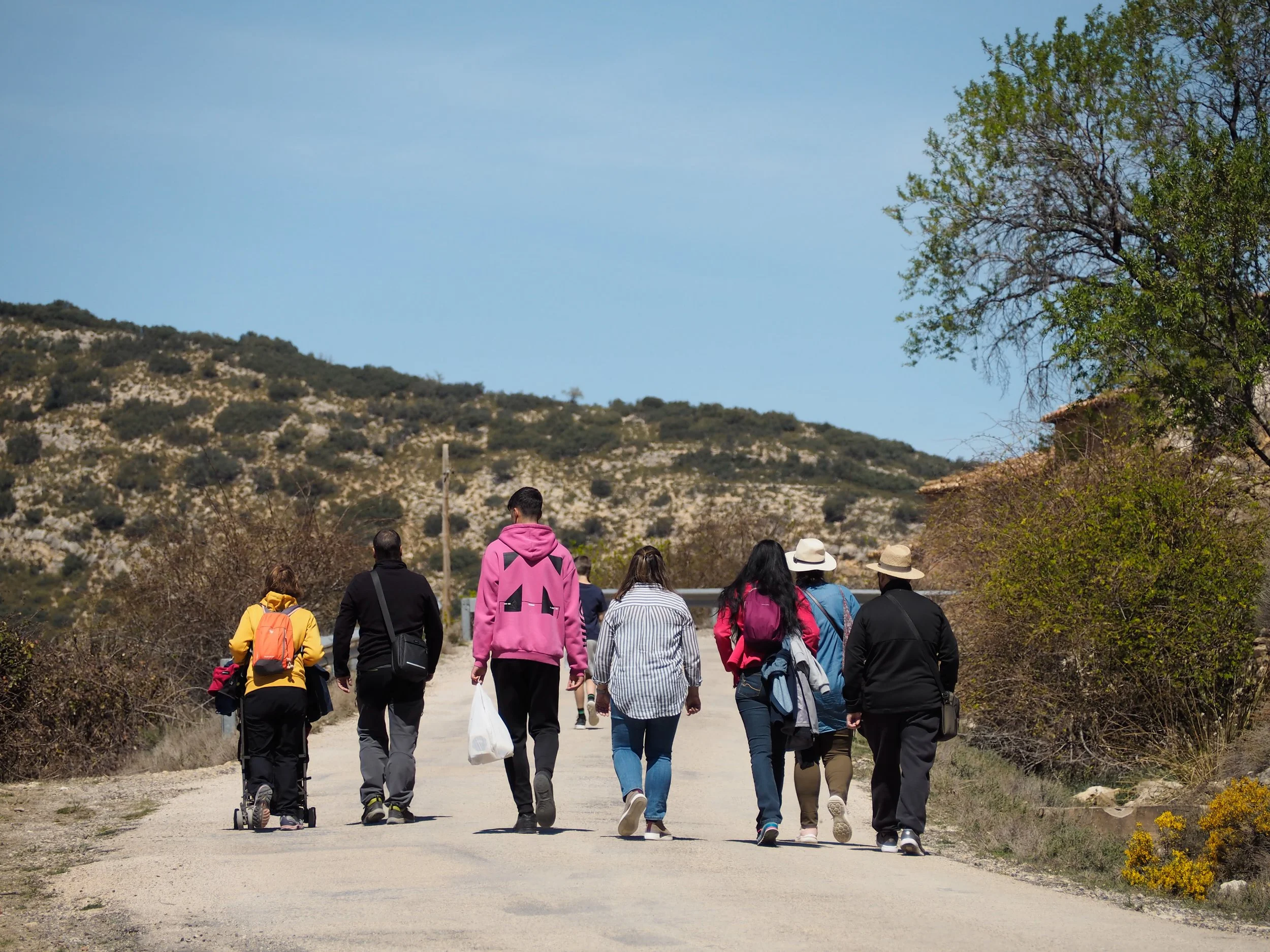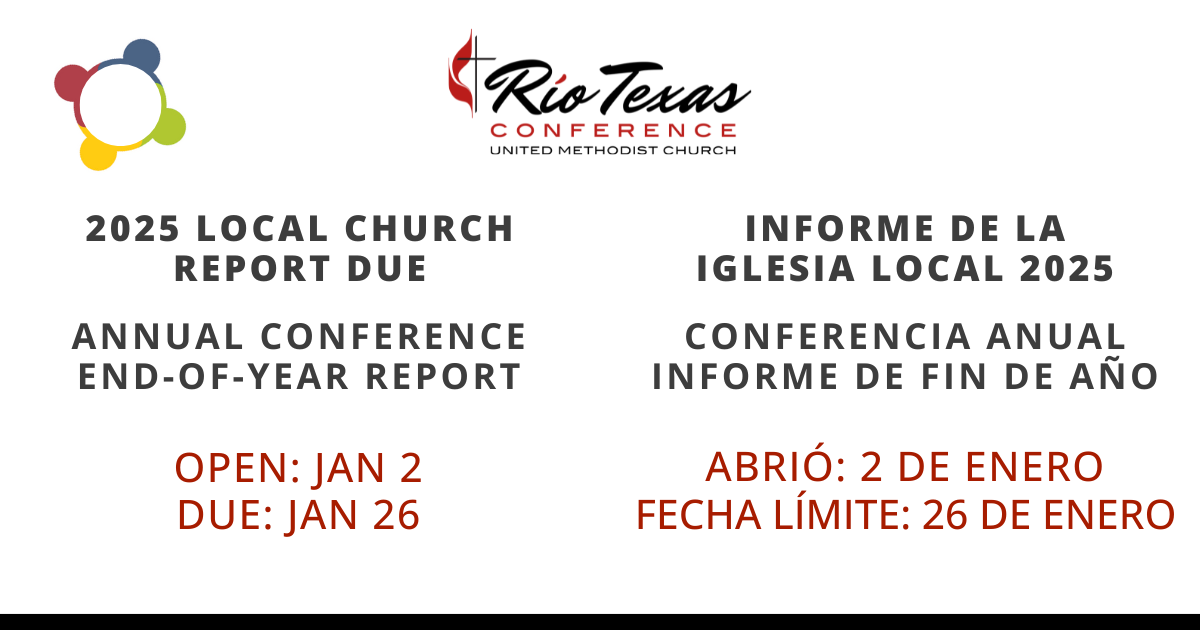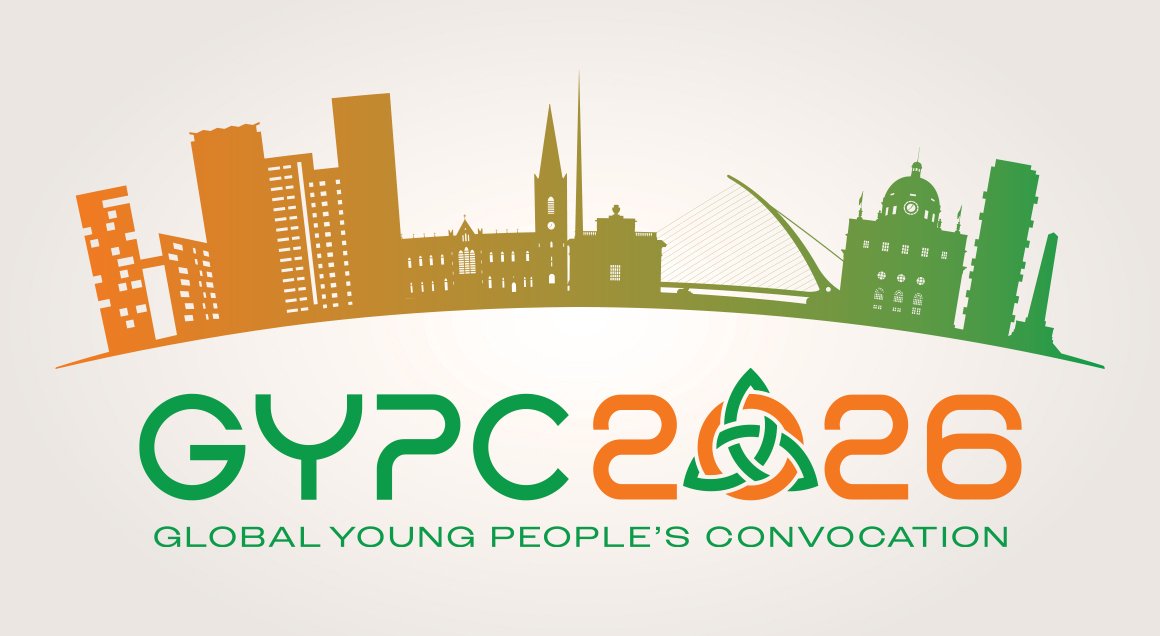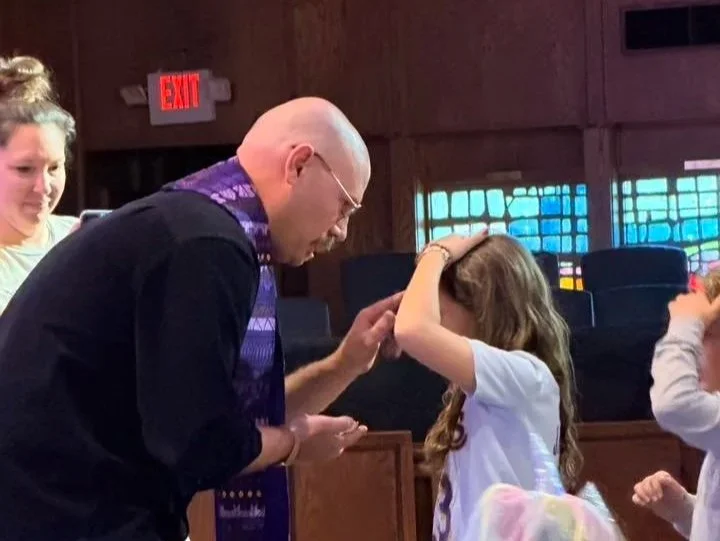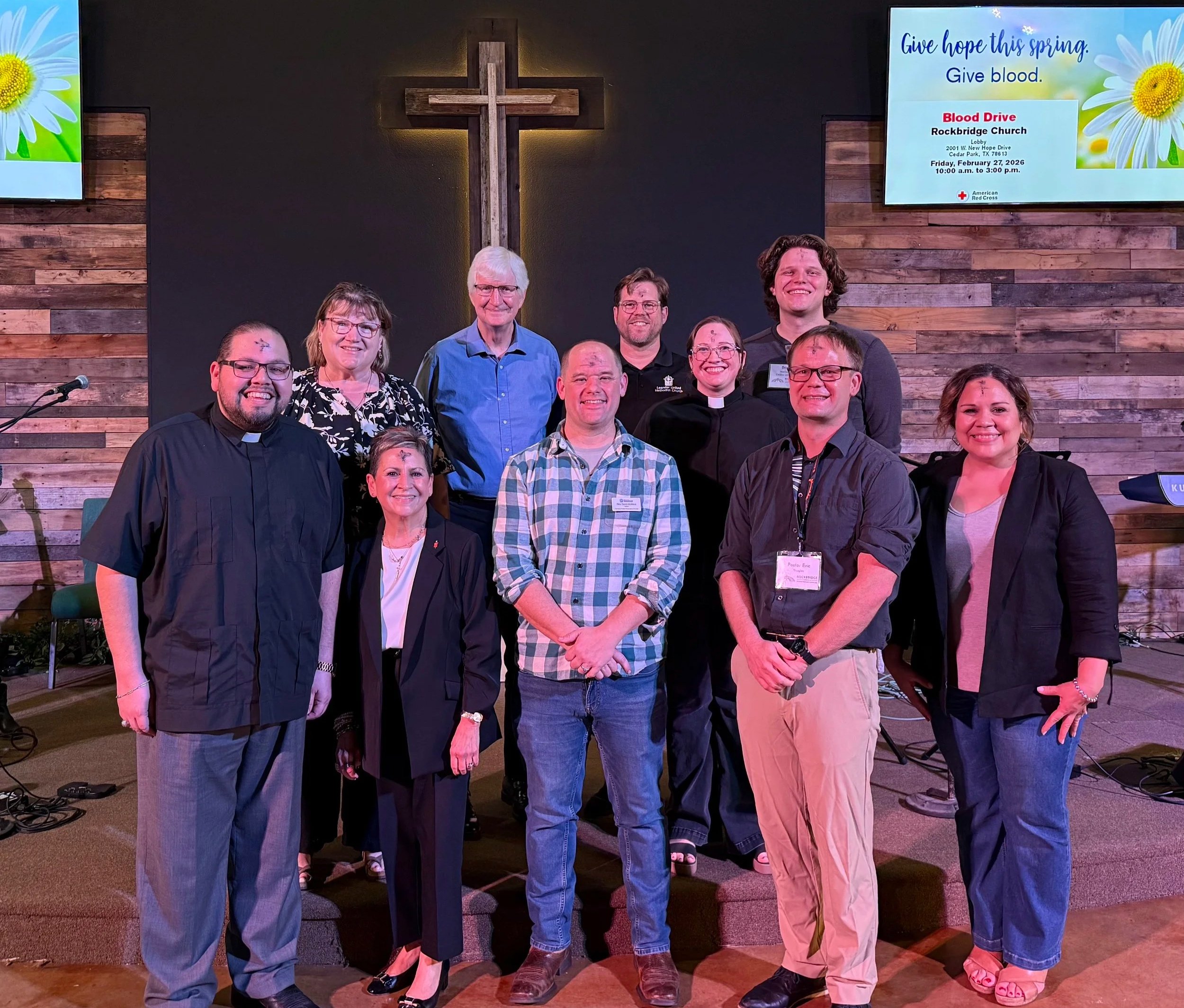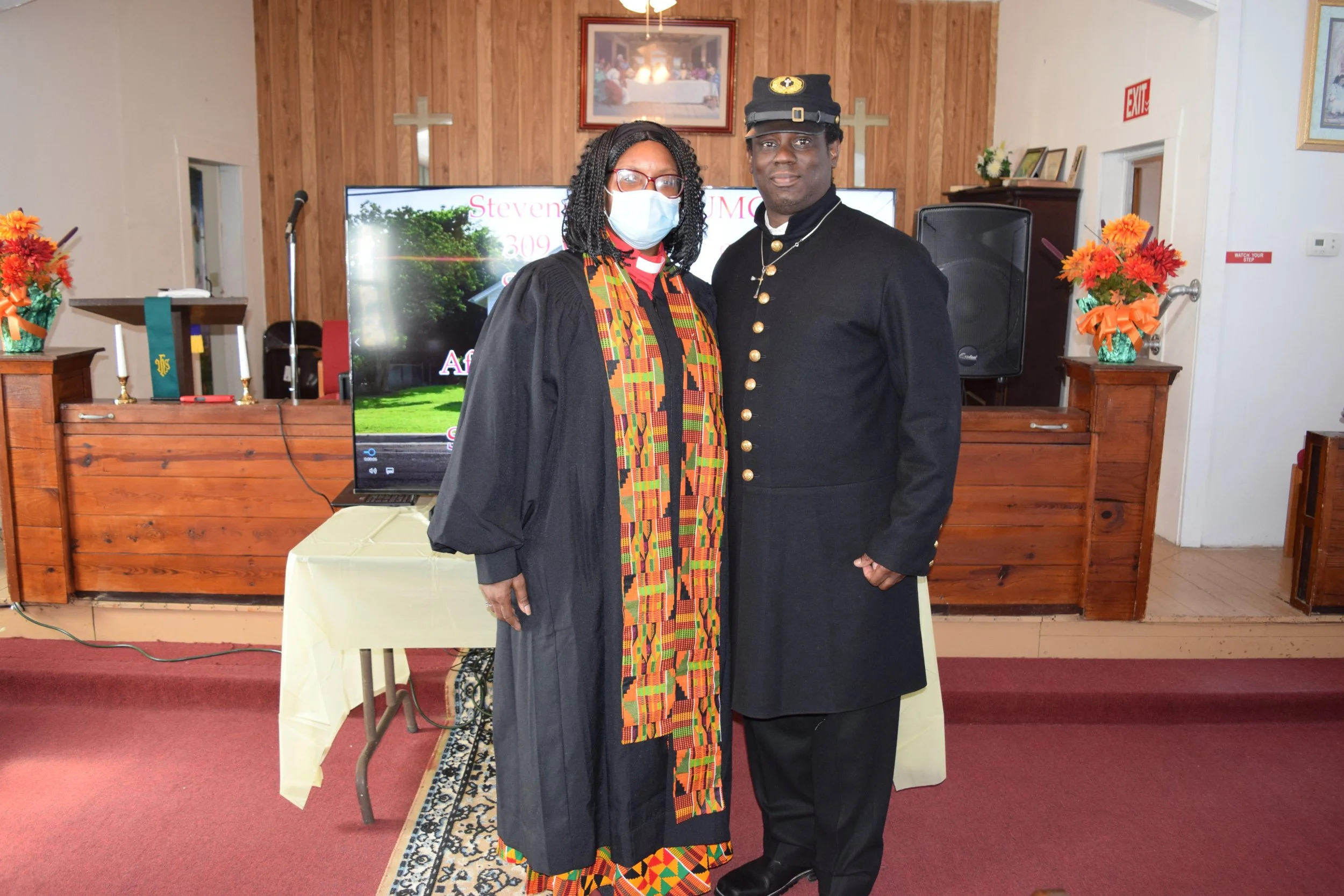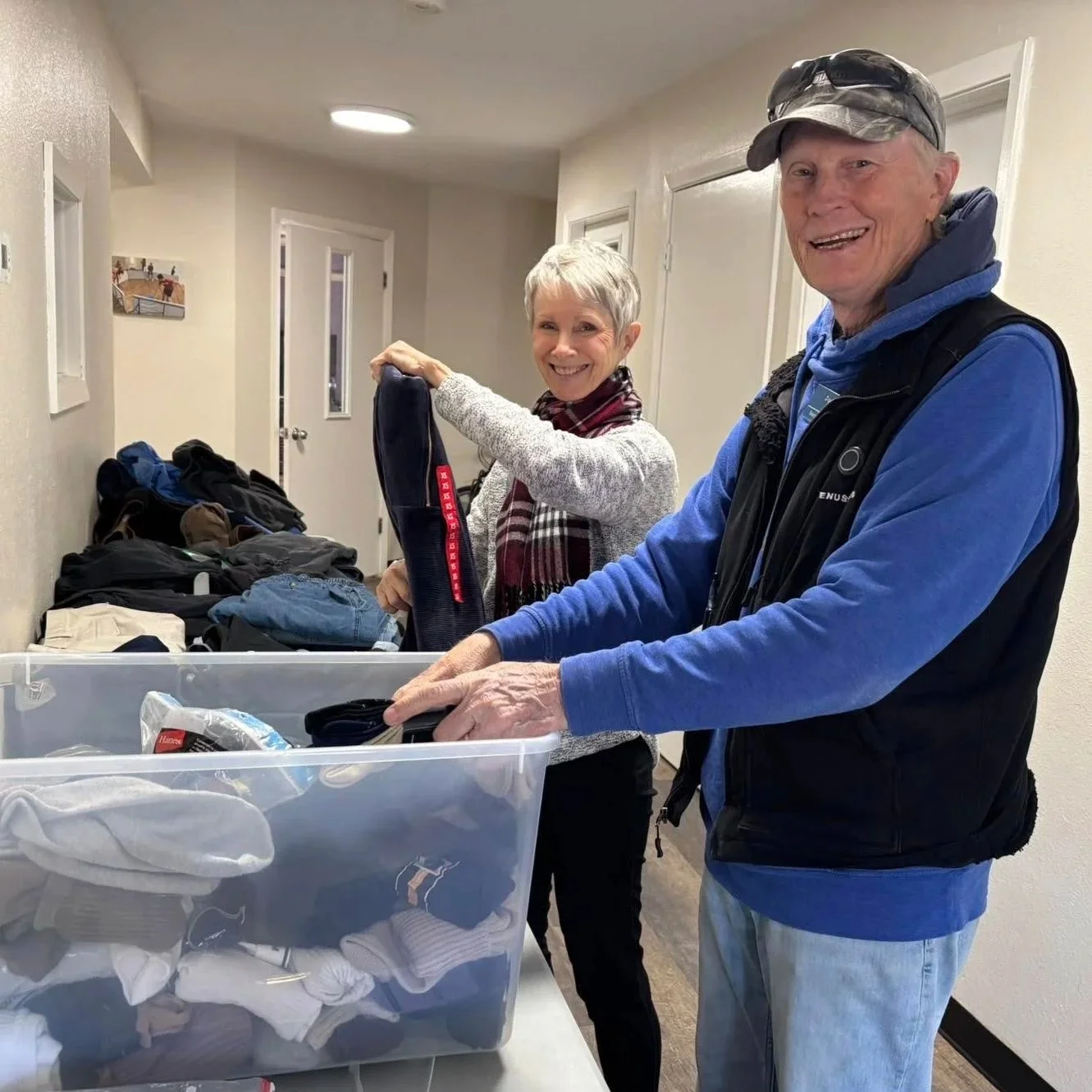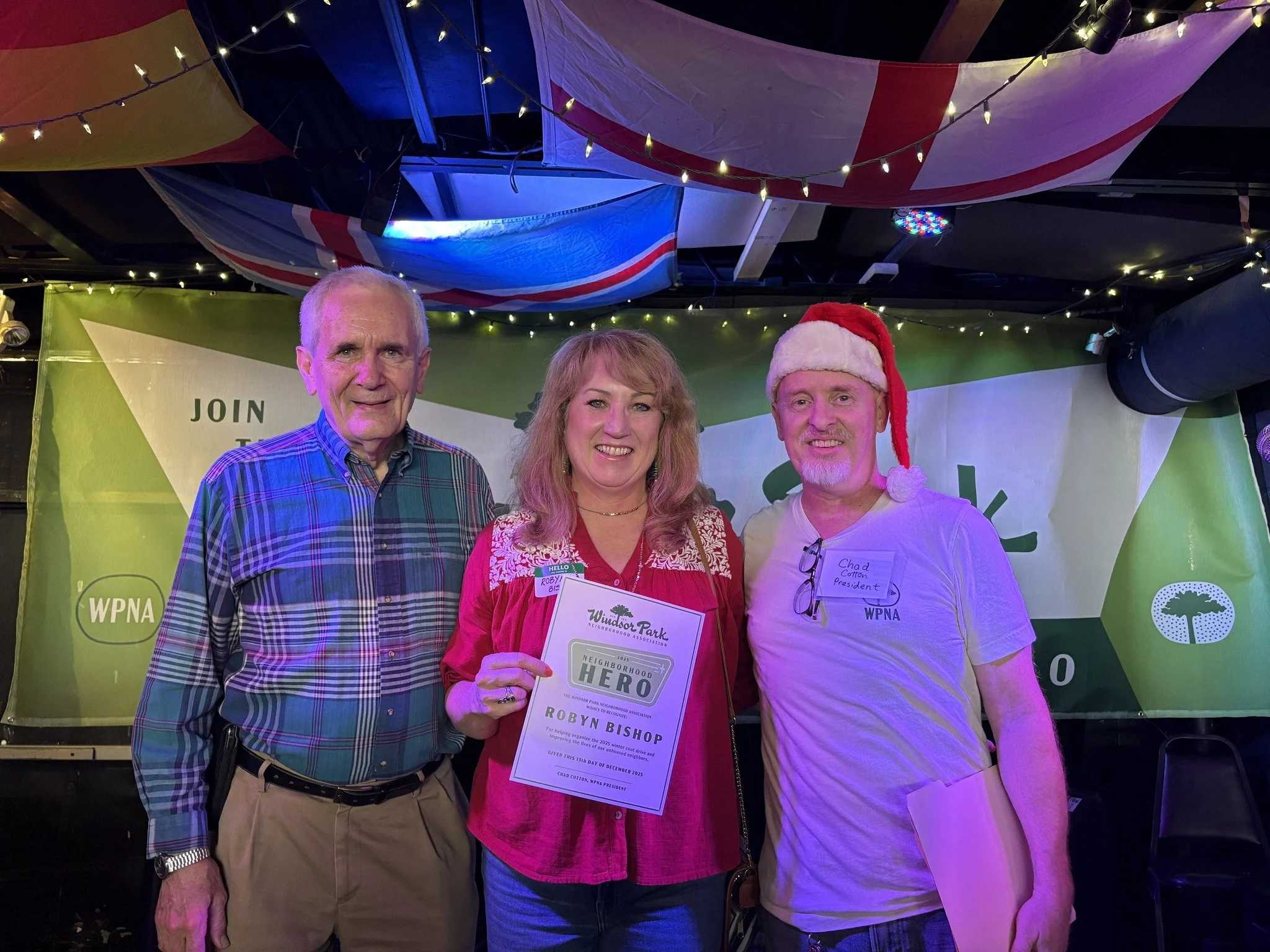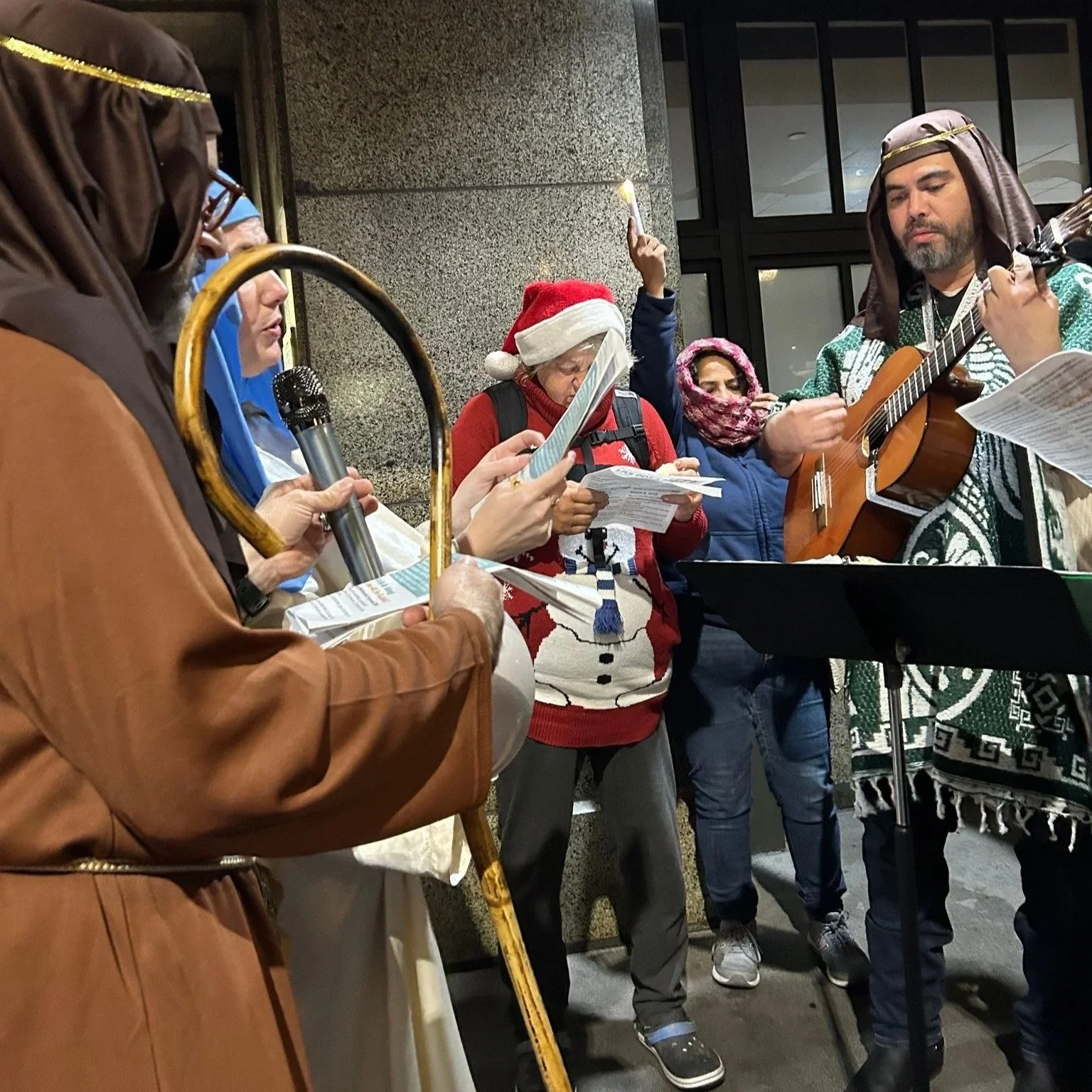Dignidad and Dinners
/“For I was hungry, and you gave me food, I was thirsty, and you gave me drink, I was a stranger and you welcomed me.” Matthew 25:35
Throughout the day, groups of 50 to 100 arrived to the Humanitarian Respite Center. They gathered around a woman with a microphone saying in Spanish, “You are in McAllen, Texas and you are now in a safe place. If you are hungry, get in line for some food, if you need clothes get in the clothing line, if you need a shower, check the schedule and get in the shower line. We also have a nurse who can help with minor medical issues.”
I was part of a team of El Valle District seminary interns, three El Valle District pastors, and nuns from New Jersey who served at the center the third week of June. Approximately 1000 immigrant refugees each day were welcomed at the center. I saw many children, a lot of them lying on a mat on the floor, others sitting in small chairs often used in Sunday school classes but now used at the center, and others simply playing. It was especially hard to see the children just trying to find a good place to rest, but adults too were finding their space whether in a hallway on a mat, underneath a table, grouped together against the wall, people were simply finding their space.
Dignidad
El Valle District has a longtime partnership with Catholic Charities and the Humanitarian Respite Center in McAllen providing supplies, food, and presence as we seek to respond out of our Christian walk.
The center’s purpose is “The HRC provides refugees compassionate care via a safe environment, legal orientation and general information, a warm meal and water, hygiene products and a warm shower, a clean change of clothes, temporary shelter, medical supplies and assistance if needed and transportation services. The target population are recently detained individuals primarily from Central America, that are about to be released by ICE and are referred to our agency from their local detention centers” (https://www.catholiccharitiesrgv.org/respitecenter/History.aspx).
El Valle District and many of its churches will continue to support this effort as part of the center’s efforts to restore dignity (dignidad) to this vulnerable community. Along with local resources, we have received a grant that encourages church participation to respond to needed requests of several respite centers throughout the Rio Grande Valley. One of the things that stood out to me along with all the activity of a 1000 people in this large space was the strong rather pungent smell that just comes with the gathering of so many people. It reminded me that there was a lot of work to be here.
Dinners
Those of us who volunteered for three days mostly worked in the kitchen. We made hundreds and hundreds of ham and cheese sandwiches which are given to folks along with water and basic supplies as they leave the center. We made pots and pots of soup. We assembled and distributed hundreds and hundreds of cereal cups with milk. We washed dishes, swept and mopped the dining room and the kitchen, setup the dining room, and threw away trash. I went to HEB for supplies multiple times and just did what needed to be done to feed everyone. We served over 2000 meals in our brief time there. The food lines were long, and as soon as breakfast service ended the lunch line began to form. It felt like the line never got shorter than 300 plus in a line at any one time.
Here is a short reflection from one of our seminary interns who served:
“Full of compassion, I lived those moments as a spiritual connection recalling Jesus’ teaching to love our neighbors as ourselves. What was more heart broken is the unimaginable number of children at the Respite Center who could say in Spanish “Me das” to express their need for food especially in morning while all immigrants lined up to receive the breakfast. This experience has enabled me to think twice and be grateful to God each time I have the opportunity to eat, that there are those who struggle to have this food, each time I have an opportunity to choose, that there are those who do not choose because they can only take what is available. From those experiences, I have known what it means to transcend our zone of comfort and really resemble Christ by serving others with joy” (Yves Kinangwa).
Helping
If you are interested in helping here or other places along the border please go to www.riotexas.org/immigrationresponse or www.elvalleumc.org/immigrant-response to finds ways to help and donate. You can also access the Humanitarian Respite Center directly at https://www.catholiccharitiesrgv.org/HumanitarianRespiteCenter.shtml.
Our bishop believes in radical hospitality as fundamental to who we are as the church. Sometimes we need to take hospitality to people in genuine and authentic ways.
Schnase writes, “Hospitality also describes the yearning to be sent by Christ into the lives of others to share the gracious love of Christ in whatever circumstance we find ourselves. Radical hospitality respects the dignity of others, and expresses God’s initiating and inviting love for every person” (19).
I believe this is sacred work. It’s sacred because the immigrant refugees who have gathered here are part of our community. It’s sacred because children deserve our very best as the church. It’s sacred because this crisis moves us past our comfort zone and helps us move deeper towards God and one another. I understand the border brings complex issues to us. Policy needs to be reshaped, government institutions are being pressed, ICE and border patrol systems are being deeply stretched, cartel and human traffickers continue to cross the border, needed work at the source in the Northern Triangle countries must take place, and we need folks trying to figure out best practices in all these areas. But part of this work is not complicated; it’s simply sacred. This is sacred work because we get to help restore dignity and help serve dinners.
Rev. Dr. Robert Lopez
El Valle and Coastal Bend District Superintendent
Work Cited
Schnase, Robert C. Five Practices of Fruitful Congregations. Abingdon Press, 2018.




